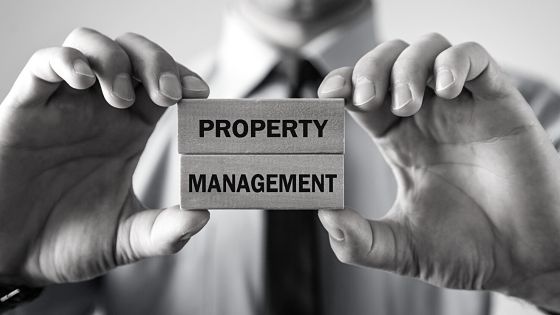If you have a passion for real estate and a knack for organisation and problem-solving, a career in property management might be the perfect fit for you. Property management is a multifaceted profession that involves the supervision, operation, and maintenance of various types of real estate properties. From residential apartment buildings to commercial office spaces and retail properties, property managers play a vital role in ensuring the efficient and profitable management of these assets.

Whether you’re considering a career in property management or are already on your way, this guide will equip you with the knowledge and skills needed to navigate the intricacies of property management successfully. Read on to find out more.
What Is Property Management?
Property management is a complex and multifaceted profession that involves overseeing the operation, maintenance, and administration of various types of real estate properties. It involves tasks such as finding and screening tenants, collecting rent, maintaining the property, handling repairs and maintenance, and addressing tenant concerns. Property managers act as intermediaries between property owners and tenants, ensuring that the property is well-maintained and profitable while providing a safe and comfortable living or working environment for tenants. For landlords, using a company that specialises in body corporate, like Strata Management Consultants, can make managing investment properties that much easier.
What Are The Responsibilities Of A Property Manager?
A property manager has a wide range of responsibilities related to the management of real estate properties. The primary objective of this role is to ensure the smooth operation and profitability of the properties under their care. Here are some of the key responsibilities of a property manager:
Marketing and Advertising: Property managers are often responsible for marketing and advertising vacant units or properties. They develop marketing strategies, create listings, showcase the property’s features and amenities, and attract prospective tenants. They may utilise various marketing channels such as online listings, social media, and local publications.
Tenant Acquisition and Management: Property managers are involved in finding and screening prospective tenants for a real estate property. As mentioned above, this includes advertising vacant units, conducting background checks, verifying references, and preparing lease agreements. They also handle ongoing tenant relations, address tenant concerns, manage lease renewals, and ensure timely rent collection.
Maintenance and Repairs: Property managers are responsible for the regular maintenance and upkeep of the property. This includes conducting regular inspections, scheduling routine maintenance tasks (such as landscaping, cleaning, and smoke detector servicing), and addressing any repairs or emergencies promptly. They ensure that the property is in good condition and meets local safety regulations and building codes.
Financial Management: Property managers handle the financial aspects of property management. They are in charge of setting rental rates based on market trends and property conditions, collecting rent from tenants, and keeping accurate financial records. They may also be responsible for budgeting, financial reporting, and ensuring that the property operates within a profitable framework, depending on individual situations.
Lease and Legal Compliance: Property managers need to be well-versed in local, state, and federal laws and regulations related to property management, in order to ensure that lease agreements are legally compliant and enforceable. Property managers are also required to stay updated on fair housing laws, tenant rights, eviction procedures, and other relevant regulations. Adhering to legal requirements is crucial to maintain a professional and ethical approach to property management.
Conflict Resolution: Conflicts between renters and property owners can occur from time to time, and when this happens, property managers act as intermediaries between property owners and tenants. They need to possess excellent communication and problem-solving skills to address tenant concerns, resolve conflicts, and maintain positive tenant relationships.
What Qualifications Do I Need To Become A Property Manager in Australia?
To work as a property manager in Australia, formal qualifications are recommended. Generally, you must hold a valid real estate licence or to legally work as a property manager. The licensing requirements vary across states and territories but often involve completing a recognised real estate course, meeting certain experience criteria, and passing an examination. Additionally, enrolling in a Vocational Educational and Training (VET) course can offer you a strong base in the real estate field, equipping you with essential skills in property administration and marketing. For ongoing professional development, consider joining professional associations such as the Real Estate Institute of Australia (REIA) or state-based real estate institutes, which provide access to training programs, resources, and networking opportunities.
When in doubt, don’t hesitate to check with the relevant state or territory regulatory body for specific licensing requirements in your area.
Challenges & Rewards Of Property Management
While property management can indeed be a rewarding career choice, it is not without its challenges. Property managers must navigate various complexities, including dealing with difficult tenants, handling emergency situations, and balancing the needs of property owners with those of tenants. Property managers also face the challenge of staying updated with market trends and emerging technologies that can enhance property management practices.
However, the rewards of property management can be significant. Aspiring property managers have the opportunity to work in a diverse and dynamic field, gaining valuable experience in real estate, finance, customer service, and leadership. Property management can offer a stable career with growth potential and the satisfaction of contributing to the success of property owners and the well-being of tenants.
In A Nutshell
Considering a job as a property manager offers a rewarding career with opportunities to build relationships, make a positive impact on tenants, and experience ongoing professional development in a dynamic industry. Remember, becoming a successful property manager takes time, dedication, and continuous learning. By following this guide and gaining experience in the field, you can build a solid foundation for a rewarding career in property management. Good luck on your journey!























